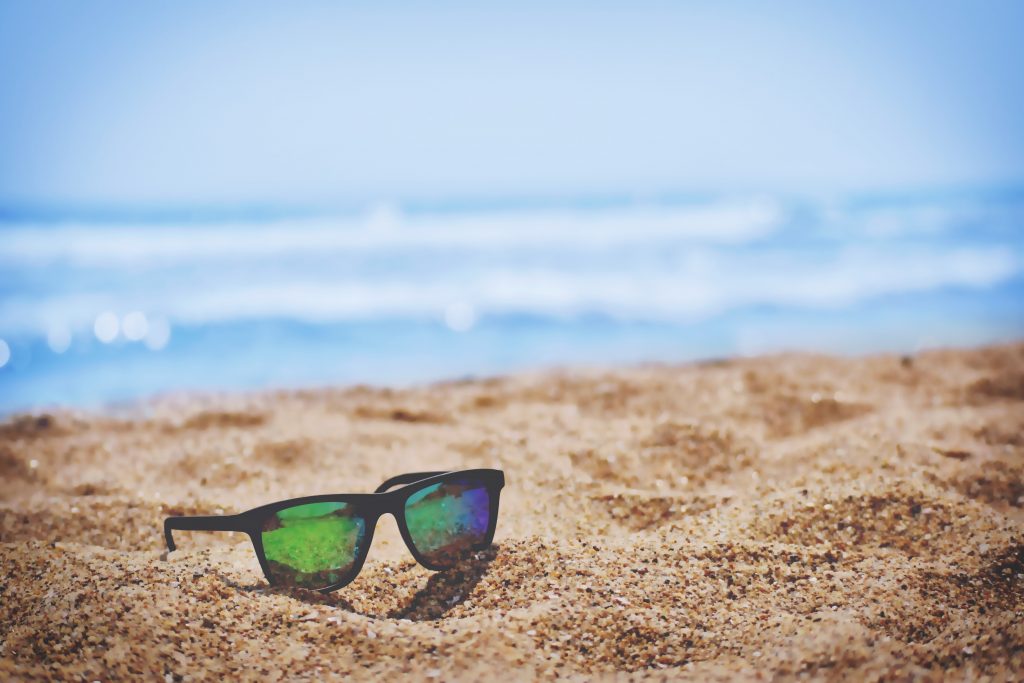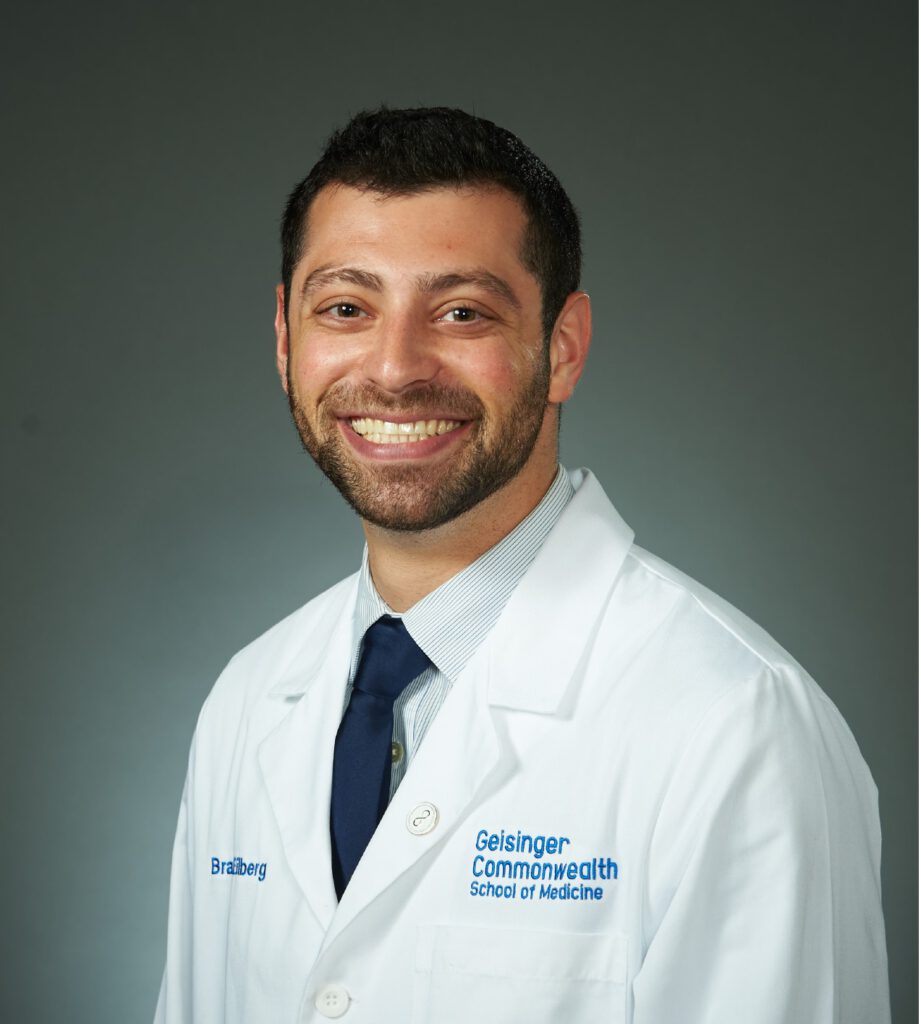
Special Feature “ Health & Exercise Forum” with Geisinger Commonwealth School of Medicine the 3rd Monday of every month!
Guest Columnist: Brandon Eilberg, MD2 GCSOM

Brandon Eilberg, MD2, GCSOM Class of 2022 – grew up in Bucks County, PA and is currently doing research with Northeast Regional Cancer Center (NROC) on radiation therapy for non-melanoma skin cancers. As a long time beach goer with a family history of skin cancer, he is very interested in this topic.
Summer is in full swing, and we are spending more time outdoors – fishing at the lake, walking in the park, relaxing at the beach, or enjoying a host of other fun activities. We remember to bring music, drinks, and friends, but one key ingredient is usually missing from the recipe for a perfect afternoon – skin protection. Preventing skin damage is just as important as other healthy habits – like exercising regularly and maintaining a nutritious diet. Repeated sun damage can result in sunburned skin that over time can appear dry, wrinkled, leathery, and discolored. Sometimes, these consequences may not appear until years after we get sunburned. The most serious concern of repeated sun damage is skin cancer, which is now the most common of all cancers in the Unites States. However, it is also one of the most preventable. By making just a few simple additions to your daily routine, you can greatly protect your skin and reduce your chances of developing skin cancer.
Below are some suggestions that physicians and cancer organizations recommend to improve the health of your skin:
• When going outside, use a broad spectrum (UVA/UVB), water-resistant sunscreen with an SPF of 30 or higher. Sunscreen acts like a shield for our skin that defends against UVA and UVB rays from the sun, which penetrate the skin and cause redness, burns, and long-term sun damage. Sunscreen is important for all skin types, even if you don’t burn easily. SPF stands for sun protection factor – the higher the SPF number, the greater amount of protection. Apply it on your skin every day when you know you will be outside and make it a habit, like brushing your teeth. Wearing sunscreen will keep you looking young!
• Apply at least 1 ounce (2 tablespoons) of sunscreen to your entire body. Be generous and apply 20-30 minutes before you go outside. Reapply every 2 hours, after swimming, or excessive sweating, even if the product is labeled as “all-day”. Make sure to cover all areas of your skin not protected by clothes!
• Avoid the sun in the middle of the day, from around 10am to 4pm. The sun’s UV rays are strongest at this time, and you may be more likely to burn during this time period. Apply more sunscreen if you want – better safe than sorry!
• Cover up. If you don’t have sunscreen readily available, seek shaded areas and wear protective clothing, such as long-sleeved shirts, pants, shoes, UV-protective sunglasses, and broad-brimmed hats.
• Keep newborns out of the sun. Infants under 6 months of age should be kept out of the sun because their skin is too sensitive for sunscreen and pigments in their skin, hair, eyes, are still developing. This means that they are especially susceptible to the sun’s damaging effects. After the age of 6 months, sunscreen is safe to apply to babies.
• Avoid tanning and never use UV tanning beds. There is no “safe” amount of tanning. The cumulative damage caused by UV rays can cause premature skin aging and skin cancers. Tanning is the body’s defense mechanism that begins after damage has been done by adding extra melanin, a pigment in the skin that acts as a natural sunscreen.
• Examine your whole body, head to toe, every month. Warning signs include changes in size, shape or color of a mole or other skin lesion, the appearance of a new growth on the skin, or a sore that doesn't heal. If you have over 50 moles or burn easily, you may want to check more frequently.
• See a dermatologist for a professional skin exam. If you notice any spots on your skin that are different from the others, or anything changing, itching or bleeding, make an appointment with a board-certified dermatologist. Based on your skin type, history of sun exposure, and family history, a dermatologist may recommend more frequent skin examinations.
Some people may be at a higher risk for developing premature skin aging, sunburns, and skin cancer than others. Possible risk factors may include:
• Increased or excessive exposure to natural and artificial UV light
• History of blistering sunburns during childhood or adolescence
• Exposure to tanning beds, especially in women 45 and younger
• A weakened immune system (due to a medical condition)
• People with a personal or family history of skin cancer
• People who tend to burn easily, or people with blond or red hair (you may naturally produce less melanin)
• People with more than 50 moles, atypical moles, or large moles
I hope you remember these short tidbits on skin health and how to be vigilant about protecting yourself from harmful UV rays. These tips are not meant to be single-use suggestions, they are lifestyle modifications to work into your daily routine. With this knowledge, you can greatly reduce your chances of developing skin-related issues like premature aging or skin cancer. So while you’re outside enjoying your summer and beyond, remember to safeguard your body from the sun. Your skin will thank you.
Sources:
https://www.skincancer.org/prevention/sun-protection/prevention-guidelines
https://my.clevelandclinic.org/health/articles/5240-sun-damage-protecting-yourself
https://www.aad.org/media/stats/conditions/skin-cancer
Read Dr. Mackarey’s Health & Exercise Forum – every Monday. This article is not intended as a substitute for medical treatment. If you have questions related to your medical condition, please contact your family physician. For further inquires related to this topic email: drpmackarey@msn.com
Paul J. Mackarey PT, DHSc, OCS is a Doctor in Health Sciences specializing in orthopaedic and sports physical therapy. Dr. Mackarey is in private practice and is an associate professor of clinical medicine at Geisinger Commonwealth School of Medicine.